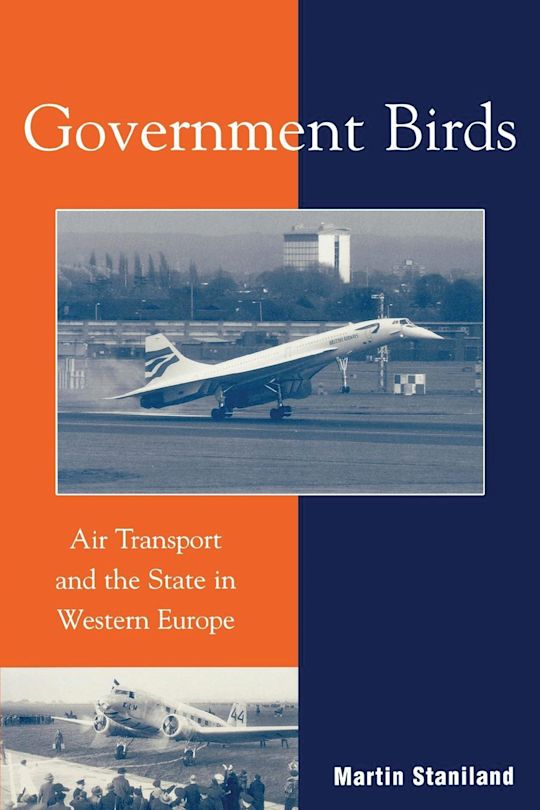- Home
- ACADEMIC
- Politics & International Relations
- Politics - Other
- Government Birds
Exam copy added to basket
Choose your preferred format. Please note ebook exam copies are fulfilled by VitalSource™.
Buy from Bloomsbury eTextBooks
You are now leaving the Bloomsbury Publishing website. Your eBook purchase will be with our partner https://www.vitalsource.com.
Your credit card statement will show this purchase originating from VitalSource Technologies. They will also provide any technical assistance you might require.
You must sign in to add this item to your wishlist. Please sign in or create an account
Description
Usually described as "state" industries, European airlines have been criticized as uncompetitive, overmanned, and subsidized. But this view begs the question of why and how the state became involved in air transport, as well as the question of whether airlines could have succeeded in Europe and elsewhere without government support.
The first comparative study of the complicated history of relations between the state and the air transport industry in Europe, the book travels from the earliest scheduled flights down to the era of liberalization and privatization in the 1990s. Martin Staniland concentrates on four key countries-France, Germany, the Netherlands, and the United Kingdom-exploring both the sources of support for airlines in Europe and the reasons why public ownership lost favor as the industry expanded. In particular, he examines links between the airlines on the one hand and national aircraft builders and ministries concerned with defense, foreign policy, and colonial administration on the other hand. The author concludes by considering the crises and restructuring experienced by national airlines in the 1980s and 1990s, and by exploring the related political battles over liberalization and privatization.
Table of Contents
Chapter 2 Early Birds, 1919-1939
Part 3 Public Ownership, 1945-1980
Chapter 4 The State as Shareholder
Chapter 5 Finance and Regulation
Chapter 6 The End of Empire
Chapter 7 Airlines and Aircraft Manufacturers
Chapter 8 Commercialism and the Culture of Production
Part 9 Liberalization and Privatization, 1980-1999
Chapter 11 The United Kingdom
Chapter 12 The Netherlands
Chapter 13 Germany
Chapter 14 France
Chapter 15 Conclusion
Product details
| Published | Sep 16 2003 |
|---|---|
| Format | Ebook (PDF) |
| Edition | 1st |
| Extent | 328 |
| ISBN | 9798216322825 |
| Imprint | Rowman & Littlefield Publishers |
| Publisher | Bloomsbury Publishing |
About the contributors
Reviews
-
Unique in its depth and comparative framework, Government Birds is also the first work to explore both the historical roots of the dynamic process of 'statization' and the reasons why state involvement was logical and even necessary at crucial points in the evolution of the air transport industry.
Giandomenico Majone, European University Institute
-
Here is a useful new assessment of how and why European airlines developed the way they have. Given the increasing pace of privatization in Europe, this new study is especially timely in providing a sense of context. After reading this you will better understand why Sabena and Swissair did not make it-and why other flag carriers may succumb as well.
Airways
-
Government Birds is a must for scholars of air transport.
The Journal Of Transport History
-
A new, important, and unique analysis of the relationship between state and airline in Western Europe that is tightly focused, engagingly written, and imaginative. The scholarship is extremely impressive, and the research extensive. Indispensable to aviation scholars and very valuable for scholars and advanced students in public policy, political economy, and European politics.
Hussein Kassim, University of London



































